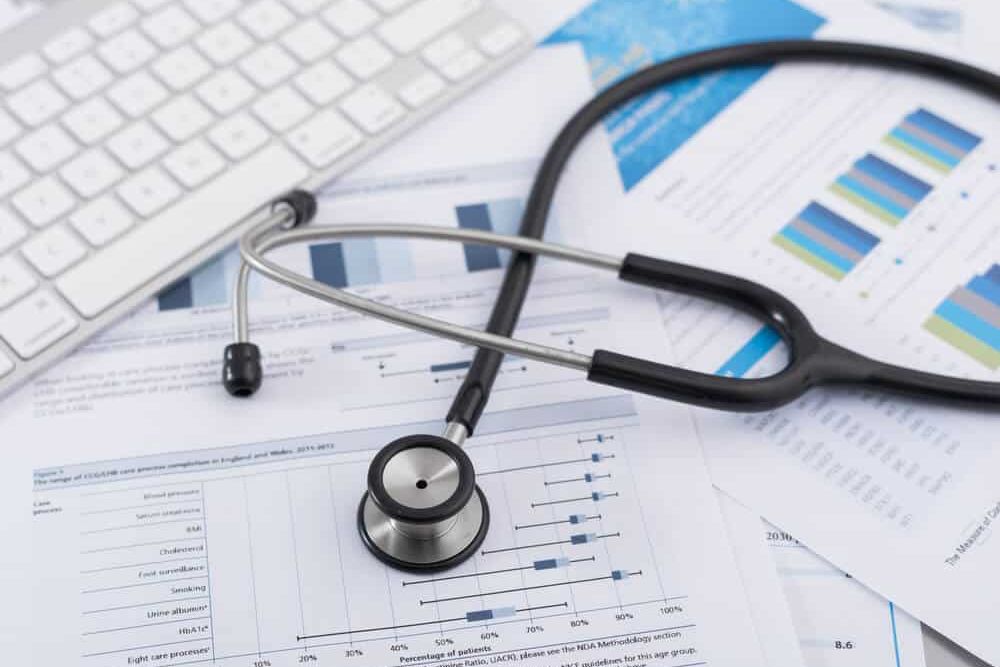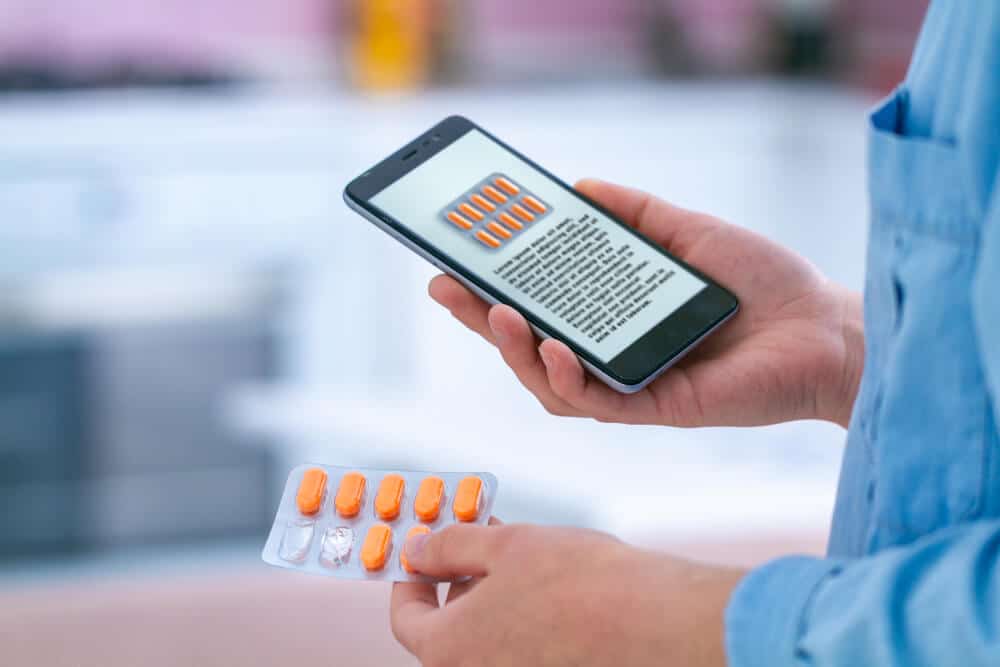MEDICAL TRANSLATION – KEEPING YOUR HEALTH IN SAFE HANDS
Did you know that incorrect translation of medical documents can be life-threatening? Medical translation is not just about transferring words and concepts, it requires absolute precision in the use of terms and meticulous knowledge of a very narrow field that can make the difference to a person’s health. It is therefore important to understand the importance of this field and why you should choose reliable medical translation specialists.
Medical and pharmaceutical translation is one of the most complex and responsible fields. It requires not only an excellent knowledge of the source and target languages, but also a thorough understanding of medicine, chemistry, biology and even Latin, which is still in active use among doctors, especially when a doctor wants to pass on information to a colleague in another country. Since medical translations often deal with issues that directly affect the health and life of the patient, accuracy and professionalism in this area are absolutely essential.
Skrivanek Baltic – your trusted partner for medical translation
Medical translation requires not only linguistic knowledge, but also accuracy, knowledge of chemistry and anatomy, as well as terminological consistency. The professional team at Skrivanek Baltic provides:
- Top quality medical translations in cooperation with experts in the field who have a university degree in medicine.
- Multi-step quality control and terminology matching.
- Translation and localisation for pharmaceutical, clinical trials and medical device documents.
- Terminology glossaries and industry-specific translations.



Terminology and language development for the medical sector with Skrivanek Baltic
Medical professionals often need advanced foreign language skills to operate successfully in an international environment. Skrivanek Baltic offers language courses for medical professionals that help:
- Doctors, pharmacists and other healthcare professionals to learn specialised terminology.
- Develop practical language skills in a variety of medical situations.
- Promote clear and effective communication with patients and colleagues in foreign languages.
Medical translation services cover a fairly wide range of texts. From highly specialised scientific publications to practical information for patients and their families. The translation must take into account the purpose of the text, the characteristics of the target environment in which it will be used and the characteristics of both languages. In the case of scientific publications, clinical trial protocols or drug information, it is important to maintain maximum precision and consistency in terminology, as these types of texts need to include professional terms that are unambiguous and refer to specific concepts.
Simplicity, clarity and easy-to-read information are essential in texts intended for patients and laypersons. After all, patients will never have the same level of knowledge as doctors, and an incomprehensible translation with lots of details and medical terminology will not only not serve its purpose, but will even more confuse patients, who most often need a different kind of calm and friendly communication.
MEDICAL DOCUMENT TRANSLATION – SENSITIVE AND DEMANDING
Names derived from Latin and Ancient Greek, abbreviations and eponyms are common in medical texts. A professional approach and the work of experienced translators are needed to avoid inaccuracies.
Medical texts translated into:
- Information material and instructions for use of medicinal products.
- Medical device documentation, user manuals and specifications.
- Clinical study documents, protocols and patient informed consent forms.
- Hospital and medical records, diagnoses and discharge documents.
- Nursing and staff training documents.
Abbreviations present a number of difficulties as abbreviations can often have multiple sources, which is particularly problematic in the absence of a clear context. In addition, eponyms (words formed from proper nouns) are often used in Western medicine, which is extremely important from the translator’s point of view as they carry important linguistic implications. Eponyms refer to the nature and symptoms of diseases, as well as to concepts of anatomy and physiology; eponyms are formed from the names of the people who first described them or, less frequently, from the names of patients.
Although this would seem to be very convenient, since it is easier to remember specific names in this way, this tendency causes some difficulties for the translator, since eponyms are often rooted in the medical history of a particular country and are therefore not uniform internationally.
Contrary to appearances, the risk of error associated with medical translation is very high. It would seem that the high level of competence of the texts and their stylistic neutrality should contribute to an unambiguous translation. However, the opposite is often the case, as the diversity of contexts and terminology used, as well as the extreme proliferation of translations of different qualities, can lead to confusion of registers and the proliferation of mistranslations. There is the well-known case of the Spanish word “intoxicado”, whose mistranslation as “intoxicated” (although the term can mean “nausea associated with food poisoning”) led to treatment errors that resulted in the patient being diagnosed with quadriplegic paralysis.
WHAT AND WHO CAN TRANSLATE?
The most important types of medical texts requiring translation can be divided according to their purpose into: information material, instructions for use of medicines containing information for both patients and doctors, descriptions of medical products (SPC, pol. GLP); translations related to medical devices, i.e, user manuals, accompanying documentation, specifications; clinical trial documentation, protocols, patient informed consent forms, patient information; hospital and medical records, e.g. discharge, medical orders, diagnoses; training documentation for nurses or hospital staff. The last group is no less important: promotional material, mainly descriptions of medicines and medical devices and promotional leaflets – press publications, internet publications, websites of pharmaceutical companies and healthcare providers.
With the wide availability of scientific material in various fields and the possibility of further training online and in training courses, a medical translator no longer needs a degree in a specific field. A professional translator can develop the skills to produce top quality texts with full equivalence of medical terminology by adhering to a high level of discipline, using as many sources of knowledge as possible and collaborating with specialists.



WORKING WITH A TRANSLATOR AND INTERPRETER
When working with a professional translator or translation agency, it is important to pay attention to the company’s experience in the medical field. It is always advisable to ask for references and to find out exactly what kind of texts the company has worked with. Once the best service provider has been chosen, the materials that the translator will receive from the client also play an important role. The provision of glossaries and supporting material by the client is particularly important to enable future translators to maintain terminological consistency with previous translators and to avoid confusion, for example, with regard to product names or expressions commonly used in a particular company. Adherence to all these principles should promote fruitful cooperation and high quality translations.
Online medical translation services are very convenient. Instead of going to a translation agency, you can simply upload documents online and receive a translation in a short time. This makes it easier for medical professionals to translate medical documents quickly and accurately.
Skrivanek Baltic provides both traditional and online translation services that enable you to produce medical documents quickly and accurately – in situations where accuracy can be life-critical.
Overall, using online medical document translation services is an excellent way to ensure accuracy and efficiency when communicating with medical professionals in other countries. They provide an affordable and convenient option for fast and accurate translation of medical documents.
Why choose Skrivanek Baltic?
- More than 30 years of experience in medical translation
- Partnerships with the world’s largest pharmaceutical companies and medical institutions
- Professional translators and interpreters with a medical background
- Language courses for medical professionals
Contact us today or book an online consultation to get high quality medical translation or medical language courses!

